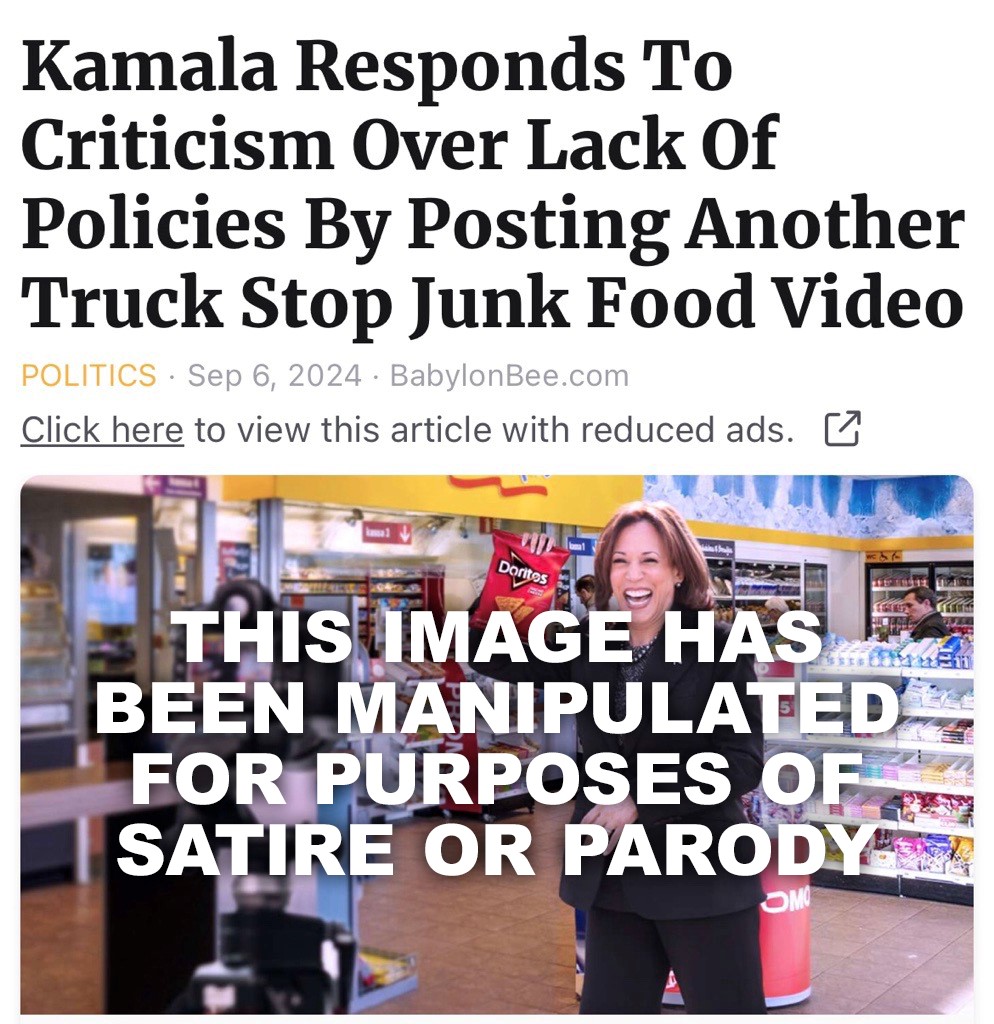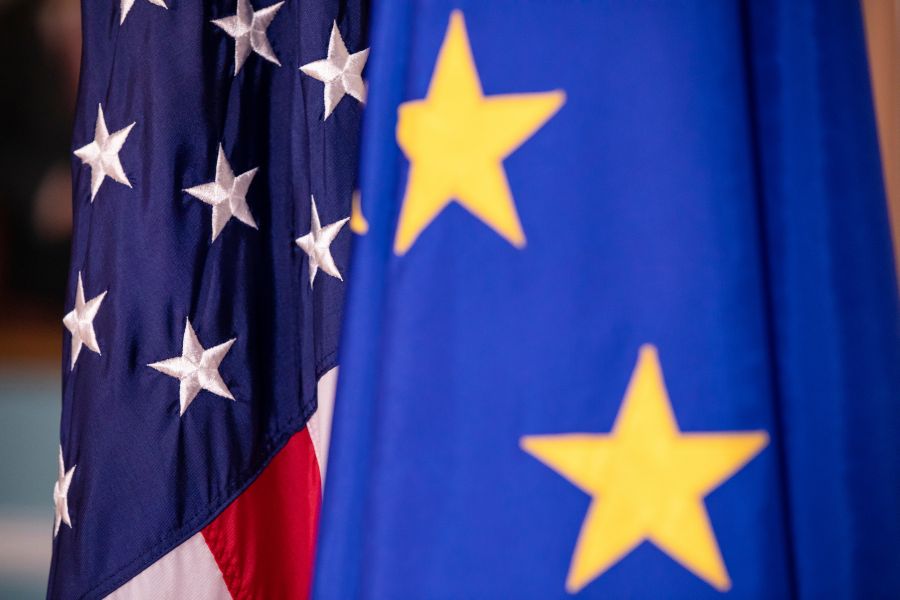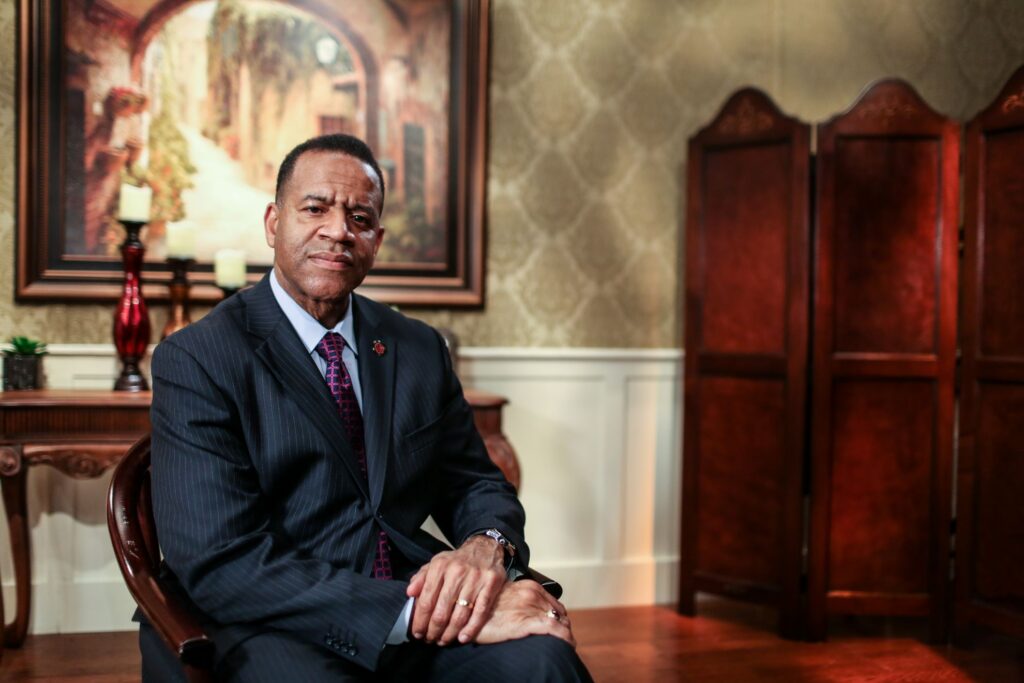
For centuries, satire has been an important tool for critiquing and debating the prevailing ideas of the time. From Jonathan Swift’s Gulliver’s Travels to George Orwell’s Animal Farm, satire has been used both to provide social commentary and to reveal underlying truths.
But two laws in California were trying to censor free speech and specifically targeted satirical works. Government officials have no right to decide what gets to be said in our online political debates, so Alliance Defending Freedom challenged the unconstitutional laws in court.
A roadmap for widespread censorship
In July 2024, California Gov. Gavin Newsom tweeted that a parody video of Vice President Kamala Harris should be “illegal.” Heeding the call, the California legislature passed two laws that infringed on the First Amendment by using vague terms to ban certain political speech.
The first law, AB 2839, applied around election time to any person or group who distributes “materially deceptive content” about candidates, elected officials, and other election material. It also required people to put disclaimers on satirical posts saying, “This … has been manipulated for purposes of satire or parody.” Such a label would defeat the point of satire. The law even required that this label must be “easily readable by the average viewer” and “no smaller than the largest font size of other text” in the content.

The second law, AB 2655, required large online platforms to become state snitches by sometimes labeling and other times taking down posts with “materially deceptive content” about elections.
These two laws are a perfect roadmap for widespread government censorship. By using vague standards like banning content “likely to harm” a candidate’s “electoral prospects,” AB 2839 allows government officials to punish people for posting political memes that the officials dislike.
The law prohibits people from posting and reposting certain content online. And if you post a political meme or satirical story on social media, the law allows anyone who sees it and disagrees with it to sue you and collect attorneys’ fees. That’s a recipe for political retaliation.
Furthermore, AB 2655 forces large online platforms to become government censorship arms. This kind of coercion represents a deeply disturbing trend, and it is a blatant violation of the First Amendment’s protection against government censorship.
As a satirical news website that focuses on religious and political news, The Babylon Bee would have been forced to censor itself and/or place disclaimers on nearly all its stories under these laws, which would ruin the jokes it is trying to make.
ADF’s other client in this case, Kelly Chang Rickert, is an attorney in Los Angeles who regularly engages in political expression with the public. She wanted to continue sharing political content with her large social media following, but these laws threatened to punish her for doing so.
The solution to ‘misinformation’ is the truth
California’s censorship laws followed on the heels of other censorship that had taken place across the globe at the time, where governments used “misinformation” as an excuse to silence speech they dislike.
In 2024, for example, Brazilian Supreme Court Justice Alexandre de Moraes suspended X nationwide because he claimed the platform presented a “real danger” of “negatively influencing the electorate in 2024, with massive misinformation, with the aim of unbalancing the electoral result, based on hate campaigns in the digital age, to favor extremist populist groups.” Only after X complied with the government’s demands was the ban lifted.
The idea of banning a large social media platform because it could lead to an election outcome that government actors dislike should be outrageous to all Americans who understand the First Amendment. But the truth is that California’s laws are not a far cry from what’s happening in Brazil.
Left unchecked, laws like California’s that censor political speech could lead to the same type of censorship that Brazil is experiencing. That is why it’s a bad idea to censor political speech in the name of “protecting democracy.”
While stopping political lies is a noble goal, allowing government officials to decide what is or isn’t true is not the way to achieve it. And if we let officials decide who can or cannot make fun of them, both humor and robust political debate will fall by the wayside.
In September 2024, ADF attorneys decided to file a lawsuit on behalf of The Babylon Bee and Kelly Chang Rickert challenging California’s unconstitutional laws because we understand that free speech is a core tenet of our liberty in the United States. The way to combat lies and “misinformation” is to promote more, true speech, not censorship.
Because AB 2839—the law prohibiting people from posting “materially deceptive content” during election time—went into effect immediately, we asked a federal district court to put the law on hold. Less than a month after we filed our lawsuit, another district court ruled in a related case that AB 2839 likely violates the First Amendment. In light of that decision, California officials agreed they cannot enforce the law against The Babylon Bee or Rickert.
Finally, in August 2025, a federal court ruled that these two laws were unconstitutional.
“The court was right to rein in California’s blatant censorship. We can’t trust the government to decide what is true in our online political debates,” said ADF Senior Counsel Johannes Widmalm-Delphonse, who argued the case in court. In light of the court’s decisions, California officials won’t be able to enforce them against The Babylon Bee or Kelly Chang Rickert.
The Babylon Bee v. Bonta
- Sept. 17, 2024: California Gov. Gavin Newsom signed two laws censoring political speech and forcing large online platforms to help him do so.
- Sept. 30, 2024: ADF attorneys filed a lawsuit challenging the laws on behalf of The Babylon Bee and Kelly Chang Rickert.
- Oct. 1, 2024: ADF attorneys filed a motion for preliminary injunction with a federal district court, asking the court to immediately halt enforcement of AB 2839.
- Oct. 22, 2024: After another district court ruled that AB 2839 likely violates the First Amendment, California officials agreed they cannot enforce the law against ADF’s clients.
- Aug. 29, 2025: A federal court ruled that both AB 2839 and AB 2655 are unconstitutional.




